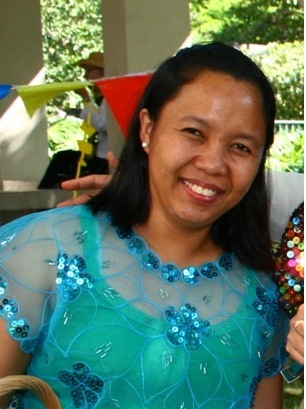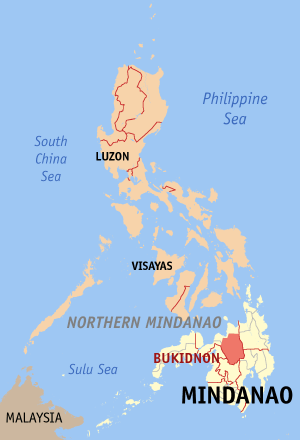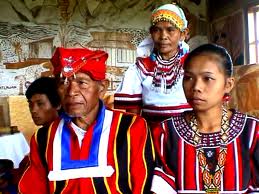 |
ldtc@hawaii.edu 1890 East-West Rd., Honolulu, HI 96822 USA |
LDTC Home | About LDTC | People | Languages | Workshops | Support |
|
|
About Me and My Language
|
Hi, my name is Maria Rosario Gamayot-Saldua, I am a a student of the University of Hawaii-Manoa doing my Master's in Urban and Regional Planning degree. I come from the City of Malaybalay in the Province of Bukidnon which is in the Island of Mindanao, Philippines. I am documenting the Binukid language which is spoken by the indigenous tribes in the Province of Bukidnon. I learned the Binukid language when I had the change to work as a literacy volunteer with the Bukidnon Pulangiyen tribe in 1994-1997. To me, documenting the Binukid language is my own way of promoting the use of local language and hopefully contribute to building indigenous people's children's confidence in using their own language and culture. |
 |
| Contact Email | mrg3 at hawaii.edu |
| Preferred name(s) of your language | Binukid |
| Alternative names | |
| Language classification | Austronesian, Malayo-Polynesian, Philippine, Greater Central Philippine, Manobo, North |
| Approximate number of speakers | About 100,000 |
| Other languages spoken in the area/country | Cebuano, Tagalog |
| Official language(s) in your country | Tagalog |
| back to top | |
| Background of the Language Binukid language is spoken by indigenous people specifically the Higaonon, Talaandig, and Pulangiyen. These tribes are found in the Province of Bukidnon and in the Provinces of Agusan del Sur and Cotabato that are near the boundaries with the Bukidnon Province. Around 100,000 people still speak this language. According to the SIL, Binukid language has the following classification and writing system:
With the modernization of society, slowly the use of the language has been diminishing and usually only the older people of the tribe use the language because as children go to school they no longer use the language. In Philippine schools, the Tagalog and English are the medium of instructions. However, there are efforts now specially in the Province of Bukidnon to promote the use of Binukid in schools. In the City of Malaybalay, several non-government organizations established culture-based education center that uses Binukid as the medium of instructions in the classes. Often, these centers are also integrating arts and cultural practices into their programs. The Binukid alphabet is only made up of 18 letters, with only 4 vowels and 14 consonants. The vowels are a, e, i, u and the consonants are made up of b, k , d, g, h, l , m, n, ng, p, s, t, w, y. The vowel e is read differently , it is read as u like in but and cup of the English language. |
 |


